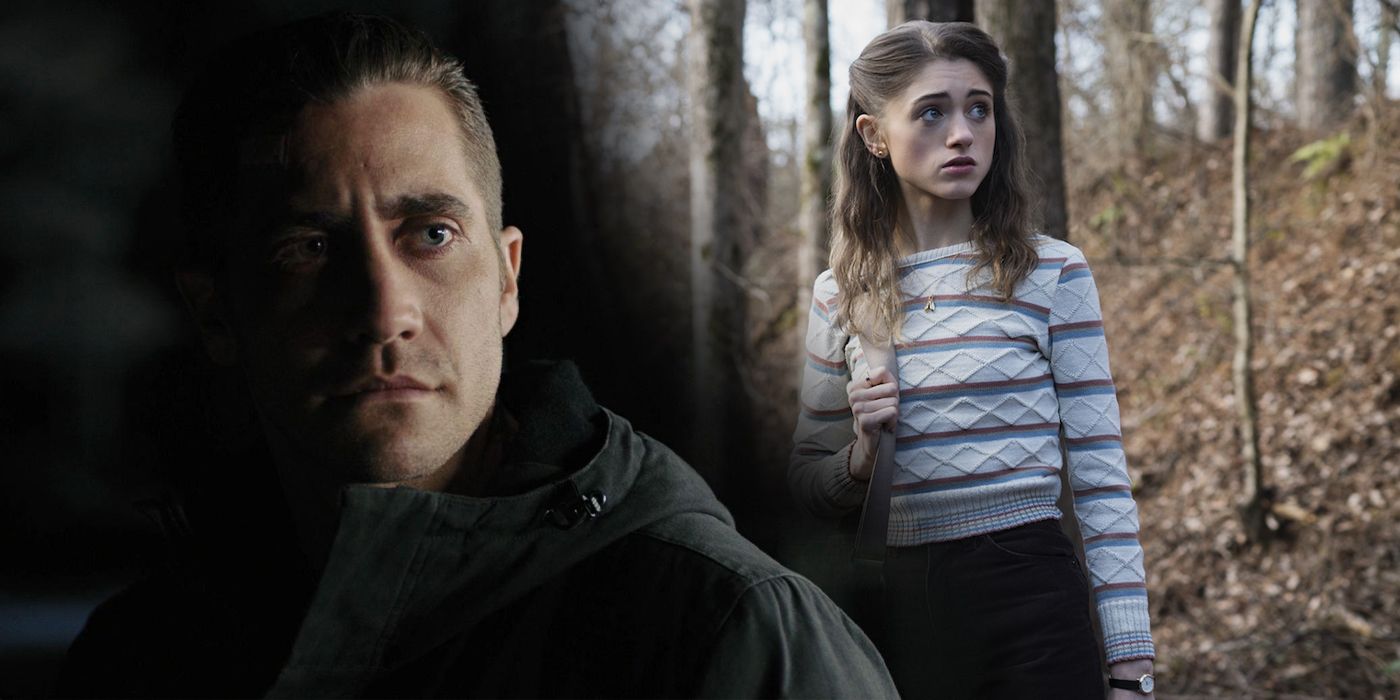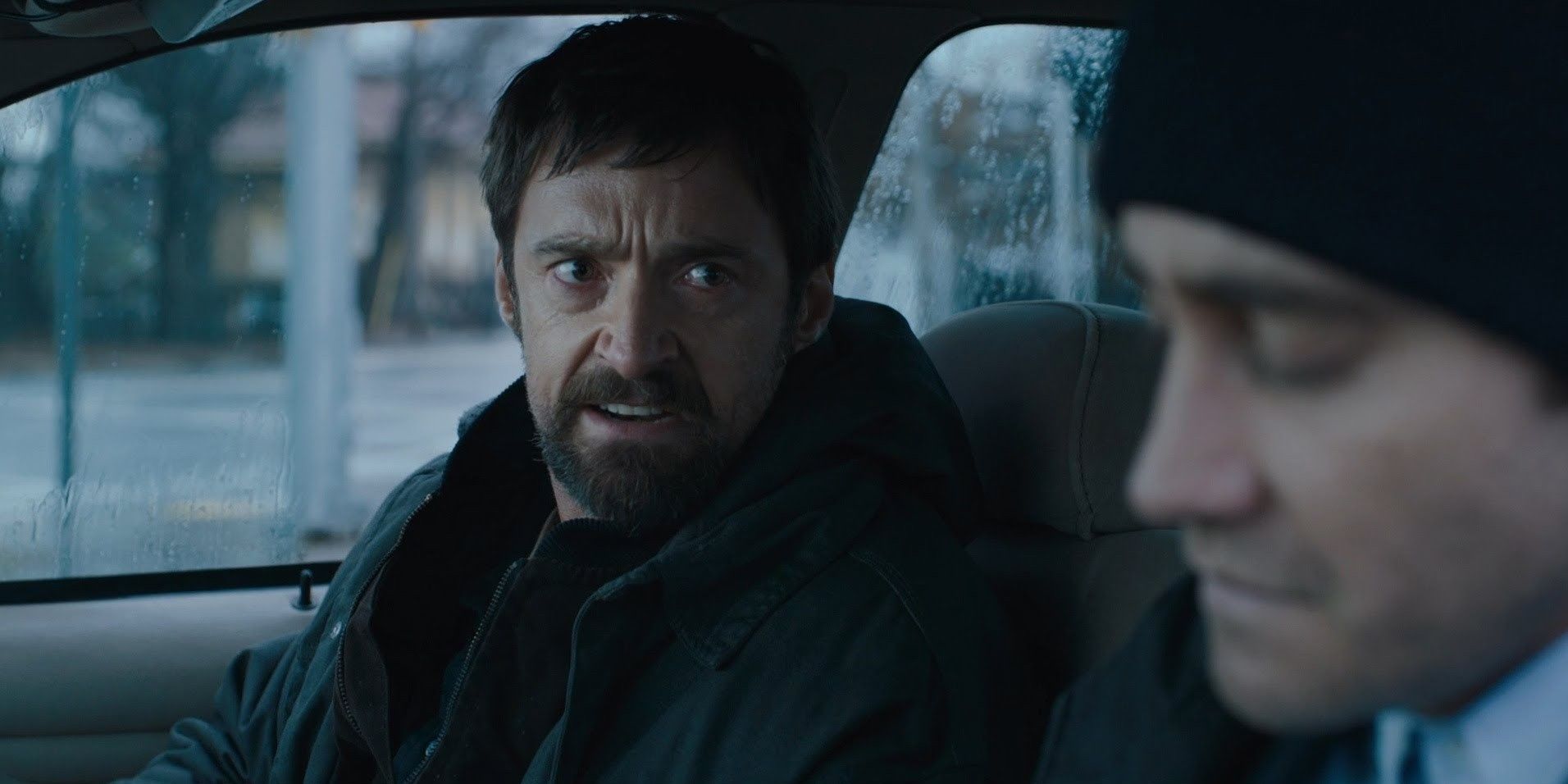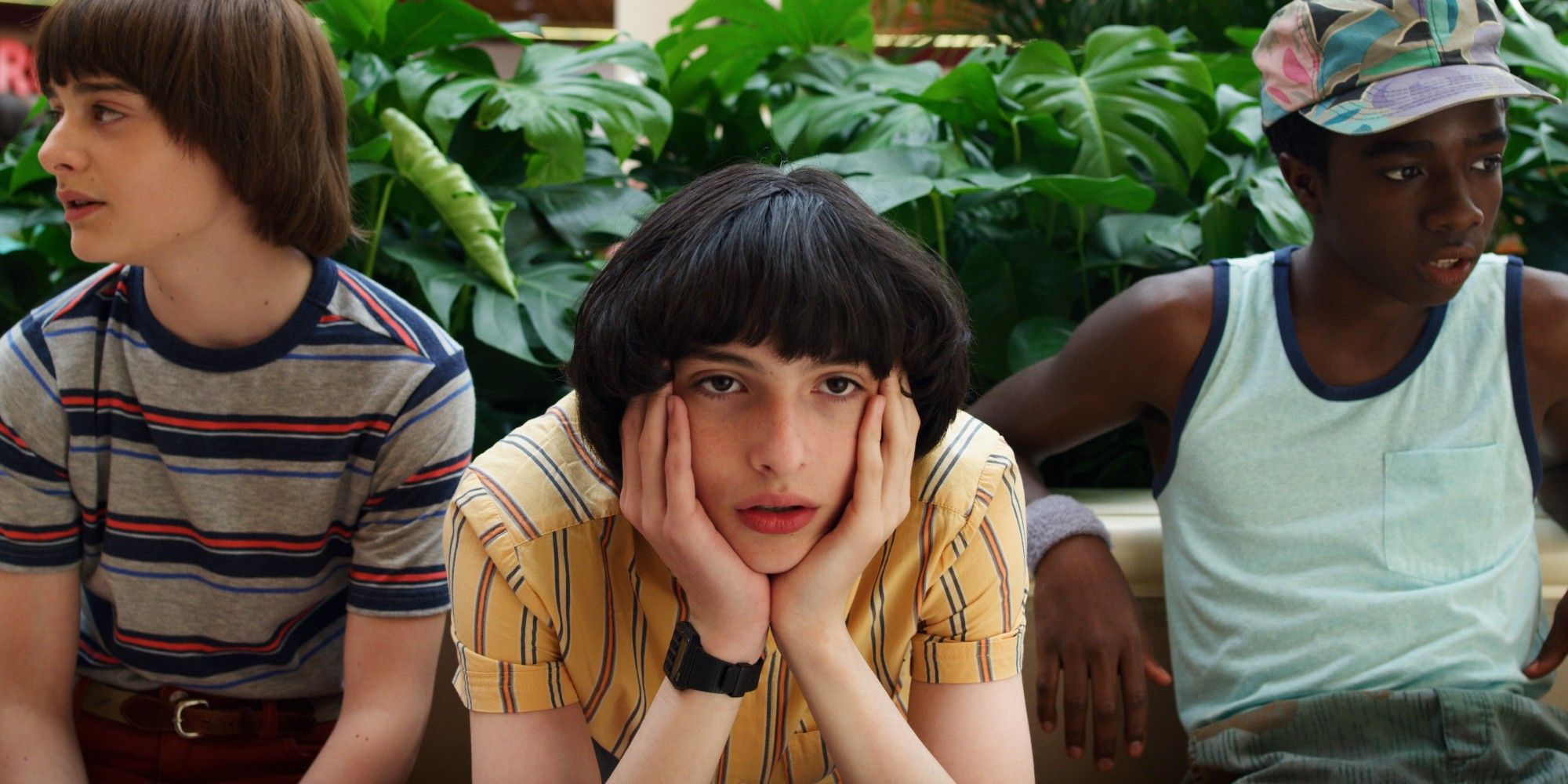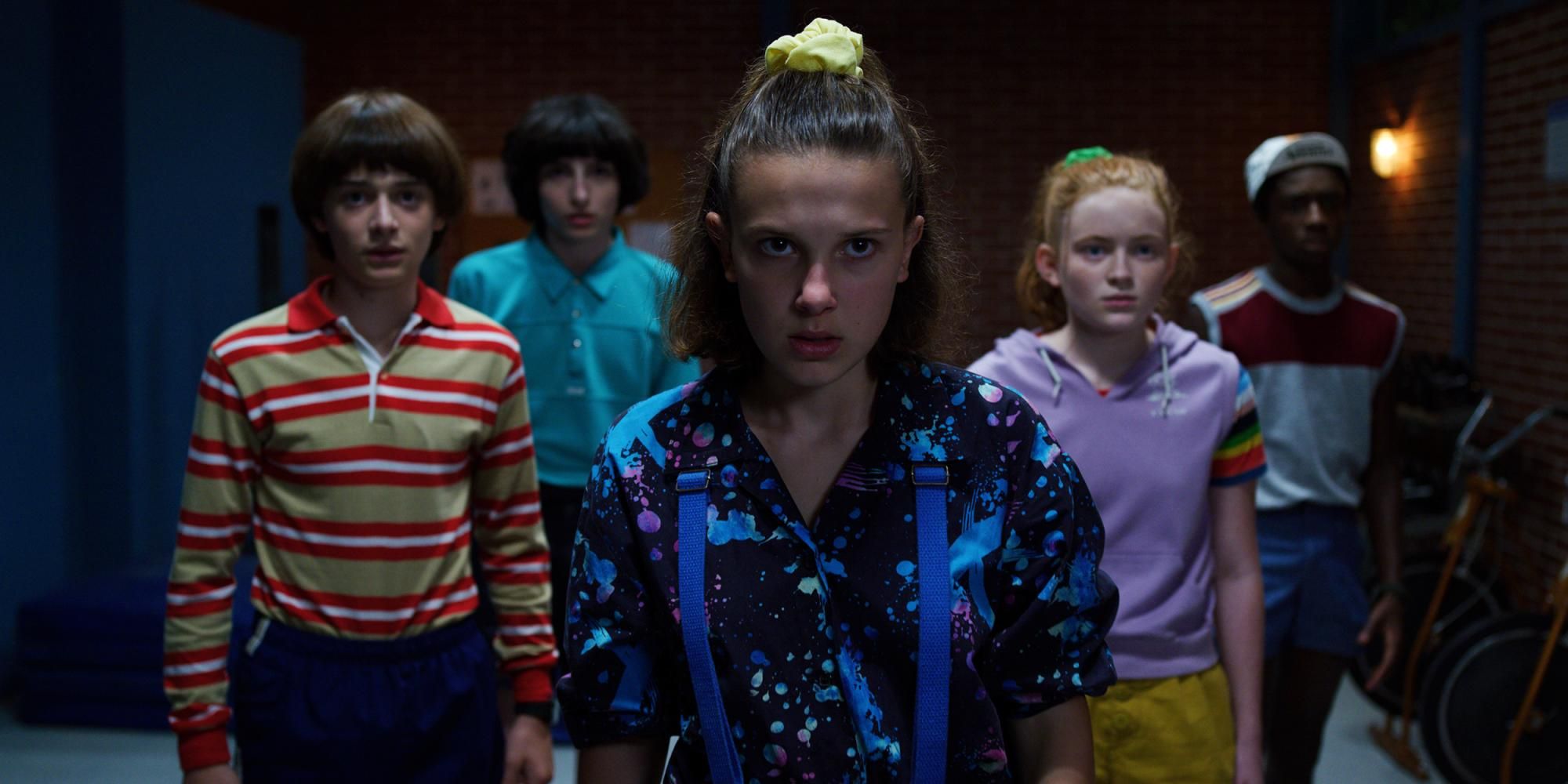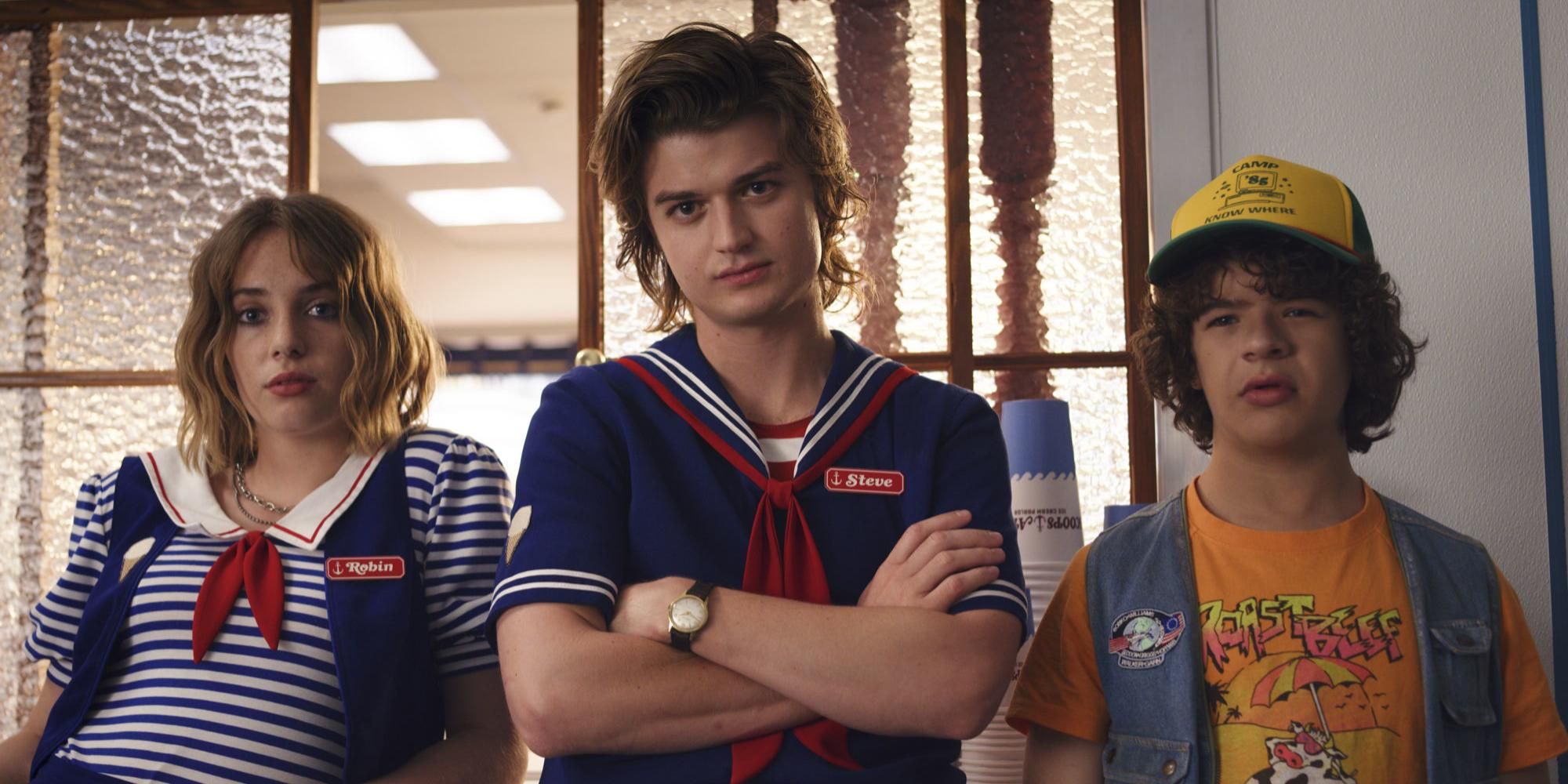Stranger Things was originally inspired by the dark domestic drama Prisoners, and the series needs to return to this early influence in its upcoming season 4. Part sci-fi, part horror, and all coming-of-age nostalgia trip, Stranger Things has been a huge hit for streaming service Netflix and its creators, Hidden helmers the Duffer Brothers.
Although each of the three Stranger Things seasons released thus far have been met with critical acclaim thanks to their reliably multi-generational stellar cast and perfectly paced storytelling, the show has run into some trouble when it comes to character consistency and nailing a clear tone. The first season, debuting in 2016, was a somber and scary affair, where Stranger Things season 3 was a goofy, candy-colored horror-comedy with a far faster pace and zanier, more broad sense of humor.
Originally, the premise for Stranger Things came about when the Duffer brothers wanted to take the central conceit of 2013’s Dennis Villeneuve-directed thriller Prisoners (which traces the breakdown of a father after his daughter’s mysterious kidnapping) but stretch the idea out over an eight-hour miniseries. The result would hopefully be making a more serious and thoughtful version of the many '90s miniseries that adapted Stephen King novels to the small screen, fusing genre elements with a core of dark character drama. The idea of adding a child-eating monster into the show’s mix skewed the genre of Stranger Things somewhat, but at its core, the story was still much intended to be about families, moral compasses, and the things that pressure both until they are warped out of shape (sometimes irreparably). Stranger Things was intended to be a dark drama with some sci-fi and horror elements, something the first season achieved and later seasons forgot.
Prisoners’ Influence On Stranger Things Season 1
With Hopper grieving over the then-relatively recent death of his daughter and the Byers family falling apart before the action of the series starts, it’s fair to say the first season of Stranger Things was an emotionally fraught affair. The search for Will and Joyce’s (seemingly) hysterical grief owes a debt to Prisoners, and even after the emotional reunion at the season’s close, it’s still a realistic and grounded, often somber, series. In particular, the moment when Will’s corpse (which, admittedly, is later revealed to be a fake) is discovered to the accompaniment of Peter Gabriel’s haunting David Bowie cover “Heroes” is as viscerally upsetting and moving as anything in the brisk, tense runtime of Villeneuve’s challenging thriller. Neither Prisoners nor Stranger Things season 1 offers any easy answers for the viewer, although both do feature a merciful ray of light at their respective closes.
Stranger Things' Season 3 Tonal Shift
However, as Stranger Things season 2 amped up the action, the show also lightened its tone, introducing more humor, more romance among its younger cast, and less pathos. Brett Gelman’s Murray cheerleading the eventual consummation of Jonathan and Nancy’s will-they-won't-they relationship, for example, was an undeniably fun moment that was nonetheless distinct from the approach found in season 1. Fans, however, were largely happy with the change, and as a result, by the time Stranger Things season 3 arrived, much of the show's action was outright comedic. The once-troubled and believable disheveled Hopper became an action hero who didn’t break a sweat as he laid waste to scores of Soviet secret agents, Joyce became a quirky mom rather than someone troubled by the world ignoring her, and the most dramatic emotional event of the season was a teenage breakup (especially since Hopper’s death was a fake-out).
Viewers may have been happy to see the show’s tone switched up between seasons, but upon a re-watch, it’s hard to imagine Paul Dano and Hugh Jackman's disturbed Prisoners characters breaking out into a spontaneous shopping montage set to Madonna’s "Material Girl" the way that Eleven and Max do in season 3. Stranger Things had, by its third outing, definitively dismissed the influence of its dark original inspiration, particularly in its non-sci-fi, character-focused scenes.
Why The Shift Happened
It’s understandable that a show set in the '80s ended up feeling more like the bright, fun media of the decade rather than maintaining the darker and more realistic elements of its original indie thriller inspiration. Villeneuve's movie, like much of his intense oeuvre, is far from being a fun, high-spirited affair. Becoming a bigger-budgeted pop culture juggernaut meant that Stranger Things started taking on fan feedback as the series progressed, featuring more meme-spawning comic relief characters like Steve, Erica, and Murray, while sidelining heavier emotional content as simply wasn’t as much fun for viewers. Season 3 saw the cast taking on giant monsters, body snatchers, villainous '80s icon Cary Elwes, and a secret Soviet spy base hidden under the Starcourt Mall, so the fact that Stranger Things no longer had time for the measured pace and subtle character details that made season 1 so effective and resonant was no surprise.
How Season 4 Can Rebalance Stranger Things
Now, though, Stranger Things has become too light and focused on genre action, meaning the character drama has come unmoored. The most jarring and heavily criticized case of this is the devolution of Hopper, who went from being a stern but well-meaning grieving father to an outright thoughtless thug by the end of season 3 since Stranger Things needed a larger-than-life '80s action hero for its now larger-than-life villains. This shift earned criticism from fans as high-profile as True Blood actor Evan Rachel Wood, who noted that a police officer abusing their power is hardly something to depict as harmless, light-hearted, and heroic in this day and age.
Sharpening Stranger Things’ focus to center on the primary cast and making their stories more resonant and less silly, along with returning to the darker and more self-serious tone of the first season, could give the show back the depth and gravitas it earned by copying Prisoners in its upcoming season 4. This tonal imbalance is something that Stranger Things needs to redress as while making fodder for image macros can be fun, the sci-fi series has the potential to still offer an emotional punch if it re-calibrates back to its original tone.

